The 2019 Chengdu Auto Show started earlier this week. The Chengdu show is the third-largest in China, after Beijing/Shanghai and Guangzhou. It focuses more on local brands than the others, which in way makes it extra interesting. As always, there were a lot of new electric vehicles. First a few key trends:
1) Show time. For the first time in about three years the existing brands took center stage, instead of the over-hyped EV-startups. Many of these startups are in trouble already, with slow sales and all sorts of technical and financial setbacks. They were surprisingly quiet on this year’s show, with very few new cars. The existing car makers on the contrary pounded the show with dozens of new EVs and PHEVs.
2) Range. When Chinese car makers started building EVs in earnest the longest range ranged from 200 to 250 kilometers. Those days are gone. The minimum acceptable range these days is 400 kilometers, with most new EVs doing 500+. China is still using the old European NEDC standard for measuring range, even though Europe has since adopted WLTP. China is currently working on its own standard, which will be comparable to WLPT. This standard is expected to debut in 2022.
3) Platform. Most Chinese car makers used to use existing petrol-powered platforms to base their EVs on. Nowadays, many are launching or developing dedicated EV-platforms. A dedicated platforms allows car makers to position the battery pack low into the chassis, and the motor(s) on the axles. This, in turn, leads to increased flexibility and efficiency, where car makers can use one EV platform as the base for various kinds of vehicles, such as sedans, crossovers, SUVs, and MPVs.
Time for a look at 6 new EVs that were launched on the 2019 Chengdu Auto Show.
Aiways U5
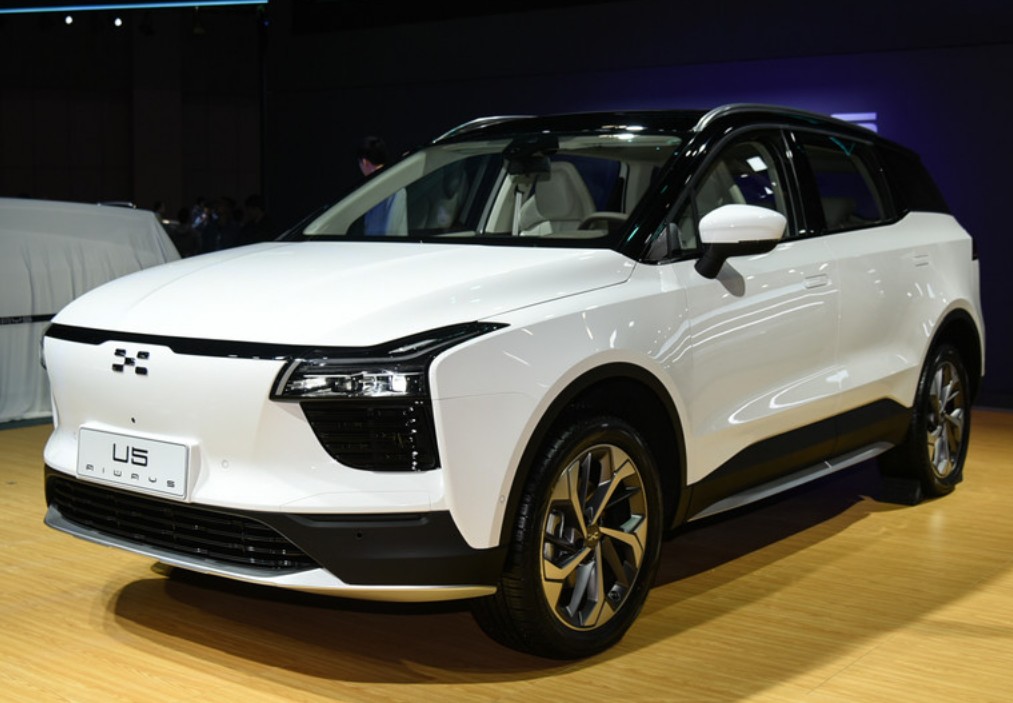
To buck the trend we start with a startup. This is the production version of the Aiways U5. Aiways is a new EV maker launched in 2016. It is an interesting company. They are developing an electric supercar with Roland Gumpert, the German engineer behind the Gumpert Apollo hypercar. Recently, they bought Jiangling Holdings, the owner of the infamous Landwind brand. This means Aiways has its own factory, unlike other startups like NIO and XPeng Motors, which depend on other car makers for production. The Aiways U5 is the company’s first car. It is powered by a single electric motor with an output of 177 hp and 315 Nm, mated to a 65 kWh battery pack. Range is 503 kilometers, or 623 kilometers with a range-extending extra battery pack. Price after subsidies starts at 248.000 yuan or $34.820.
Beijing Auto EU7
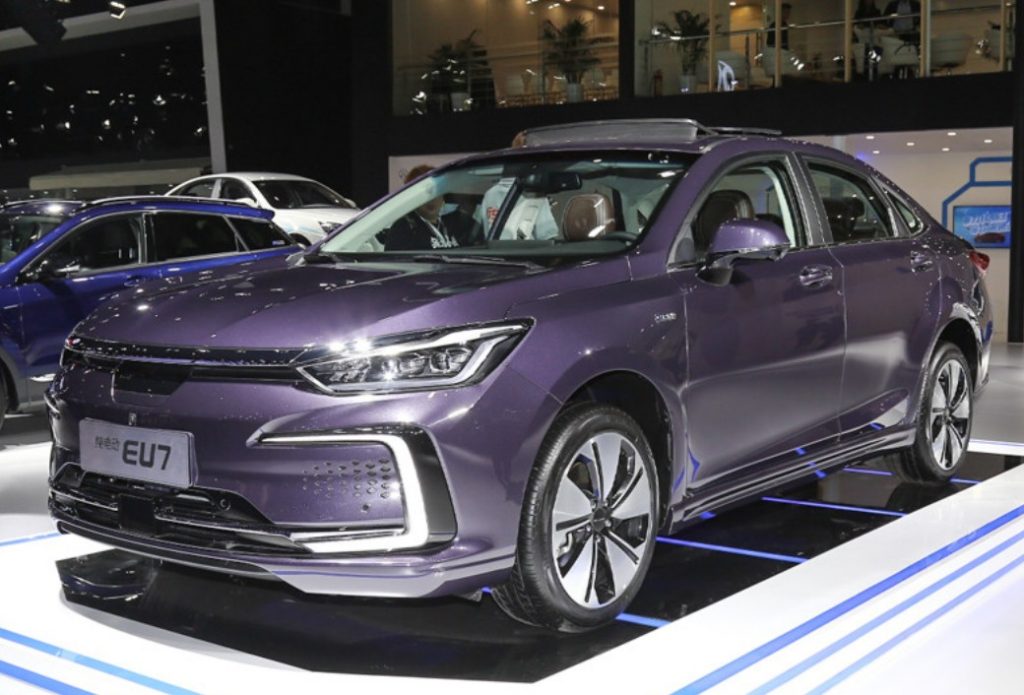
The Beijing Auto EU7 is manufactured by Beijing Auto New Energy, a subsidiary of the Beijing Auto Industry Corporation (BAIC). BAIC is a typical state-owned colossus with dozens of brands, sub-brand, and joint ventures. They were one of the very first Chinese car makers building electric cars. They started with tiny hatchbacks that could barely do 200 kilometers. How things have changed; the EU7 is their latest and largest electric car, a sharp looking luxurious mid-size sedan with an output of 218 hp and 420 Nm, mated to a 65 kWh battery. Range is 453 kilometers. The Beijing Auto EU7 will be launched on the Chinese car market in October. The company is developing various other variants of the EU7, including a long-range version with a range of 550 kilometers and a powerful duel-motor version with some 400 horses. These variants will launch in 2020.
Fengshen E70 600
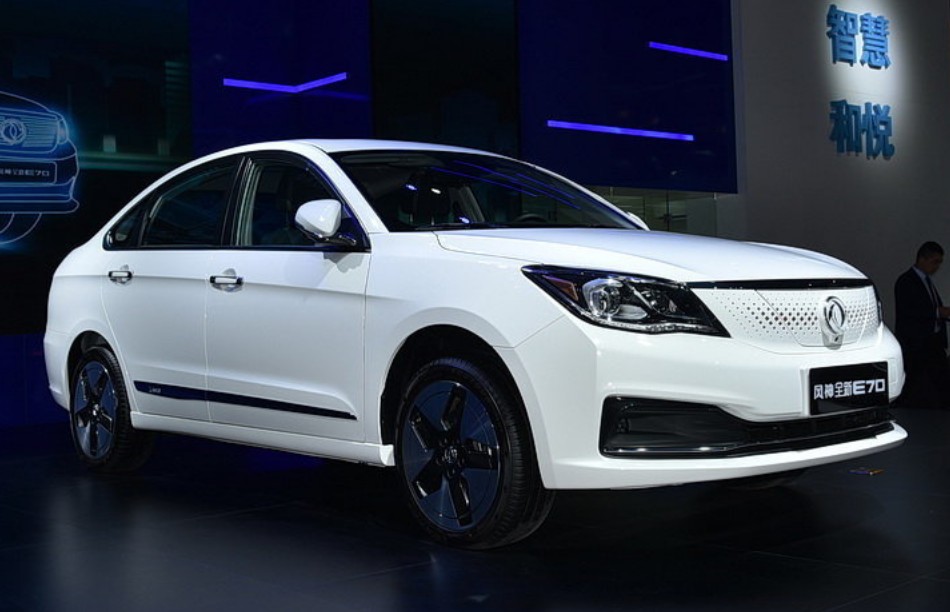
Fengsheng is a brand under Dongfeng Motors, which is another typical Chinese state-owned conglomerate with more brands than one can count. Many of these brands are making electric cars now, which in many cases are competing directly with each other. The E70 600 is the latest EV of the Fengshen brand. It is a compact sedan based on the petrol-powered Nissan Sylphy, which was made by the Dongfeng-Nissan joint venture. After production ended, Fengshen turned the Sylphy into an EV. This is a short-cut used by many Chinese automakers to launch EVs fast, a sort of interim solution before their dedicated EV platforms are ready. Output of the Fengshen E70 600 is 150 hp and 260 Nm, mated to a 61 kWh battery, good for a 501 kilometer range.
However, Fengshen is using the so called ’60 km/h cruising range’ standard. This is an unofficial standard based on an average speed of 60 km/h. Roughly speaking, to translate this standard to NEDC you have to subtract 100 kilometers, so in this case range would be about 400 kilometers, which is reasonable for a car of this kind and size. Price starts at 160.000 yuan or $22.460.
Jetour X70 S EV
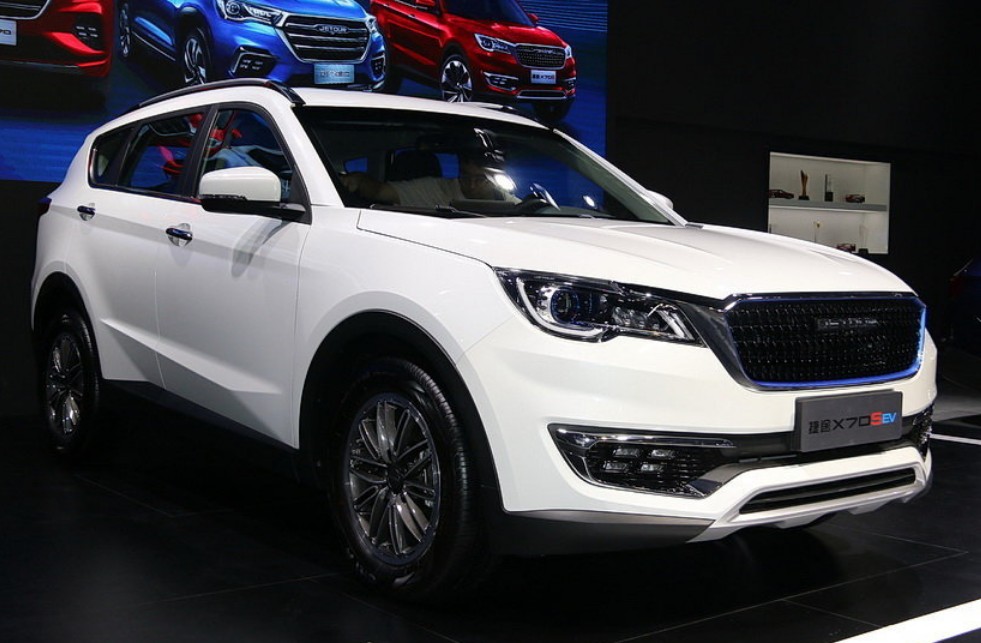
Jetour is a brand under Chery Auto, launched 3 years ago. The brand is aimed at a young audience and sells three sporty petrol-powered SUVs, one of which is the X70 S. That car now has a new electric sister, the Jetour X70 S EV. It is a good looking car but it looks almost the same as the petrol version, Jetour didn’t really bother to give the EV any distinctive looks. But it is one of the largest China-made EVs on the market, with a length of 4.7 meters and seven seats. Output is 170 hp and 300 Nm, mated to a 56 kWh battery. Range is 401 kilometers. Proce for the Jetour X70 S EV starts at 180.000 yuan or $25.270. The brand is making an even larger SUV, the Jetour X90, which will be ‘electrified’ next year. I wouldn’t be surprised if the Jetour brand goes electric-only in the near future.
JAC iEVA50
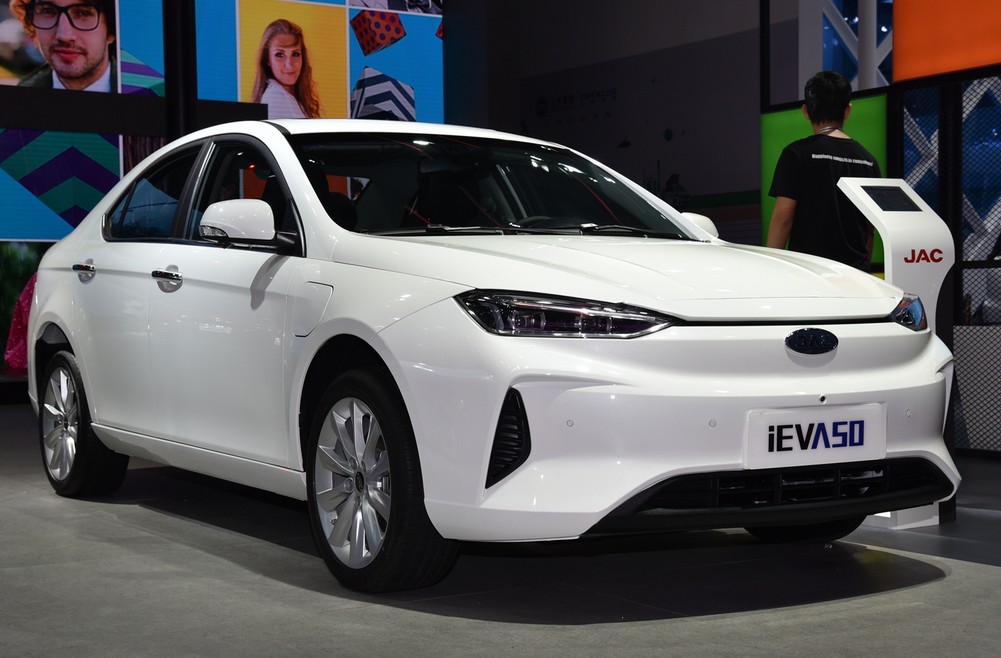
The Jianghuai Automobile Corporation (JAC) is another state-owned automaker, albeit much smaller than BAIC or Dongfeng. JAC has been making small electric cars for many years, fitted with comparatively high-tech electric powertrains. This attracted the attention of Volkswagen and in 2017 companies agreed to a joint venture to build cheap electric cars under the SOL brand, but their first car has yet to hit the market. In the meantime, JAC continues to launch ever more and ever better EVs under their own brand, and the somewhat oddly named iEVA50 is the latest of those. It is a smooth looking car with a very streamlined design. Output of the electric motor is 125 hp and 270 Nm, with a 60 kWh battery. Range is 410 kilometers. Price starts at just 140.000 yuan ($19.660), cheaper than competing cars.
Aion LX
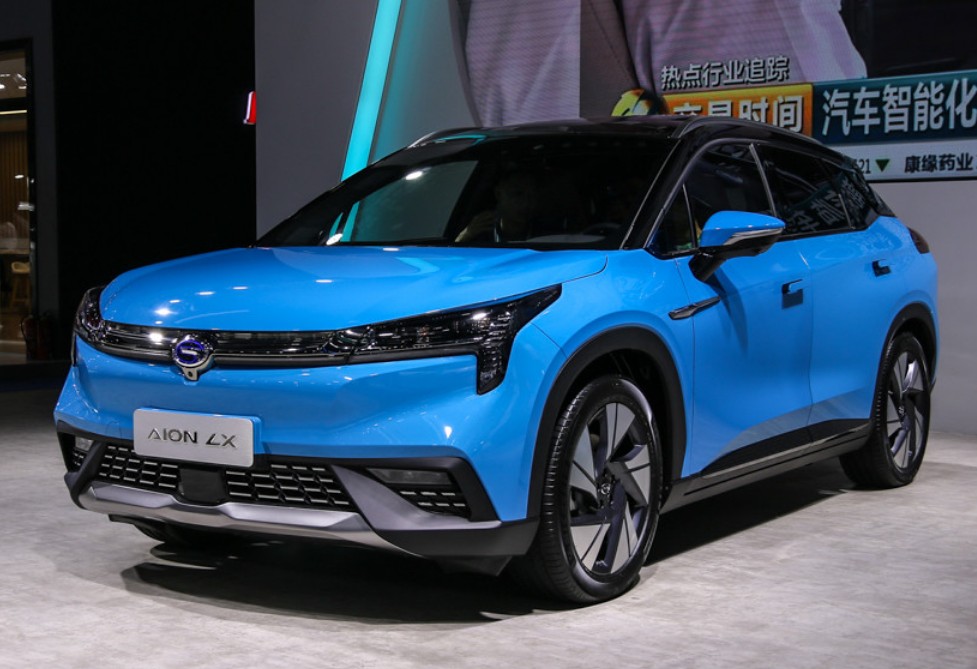
Aion is a new EV brand under the Guangzhou Auto Corporation (GAC). GAC is state-owned but in recent year they have been operating rather independent, like so many companies in southern China, far away from the controlling eyes of the capital. GAC has successful joint ventures with brand like Jeep, Honda, and Toyota, to name but a few. Wisely, they have been focusing their own-brand efforts only on their namesake brand: Guangzhou Auto. This brands sells a series of increasingly improving SUVs, crossovers, and sedans. But last year the company decided it was finally time to launch a second brand: Aion. This brands is EV-only, and like Jetour aimed at young car buyers. Their first car, the Aion S sedan, launched last year. The new Aion LX crossover os their second. It is based on a dedicated EV platform that can be fitted with one or two motors. The top range dual-motor variant has an output of 408 hp and 650 Nm, making it one of the most powerful Chinese EVs. Battery is 93 kWh and range a massive 600 kilometers. Price for the dual-motor car start at 300.000 yuan or $42.000.
Next show: Guangzhou Auto Show in early December.